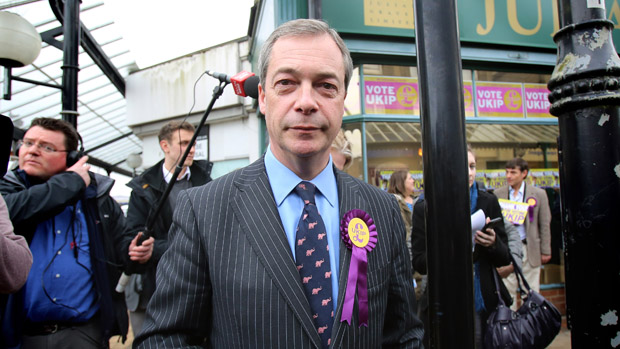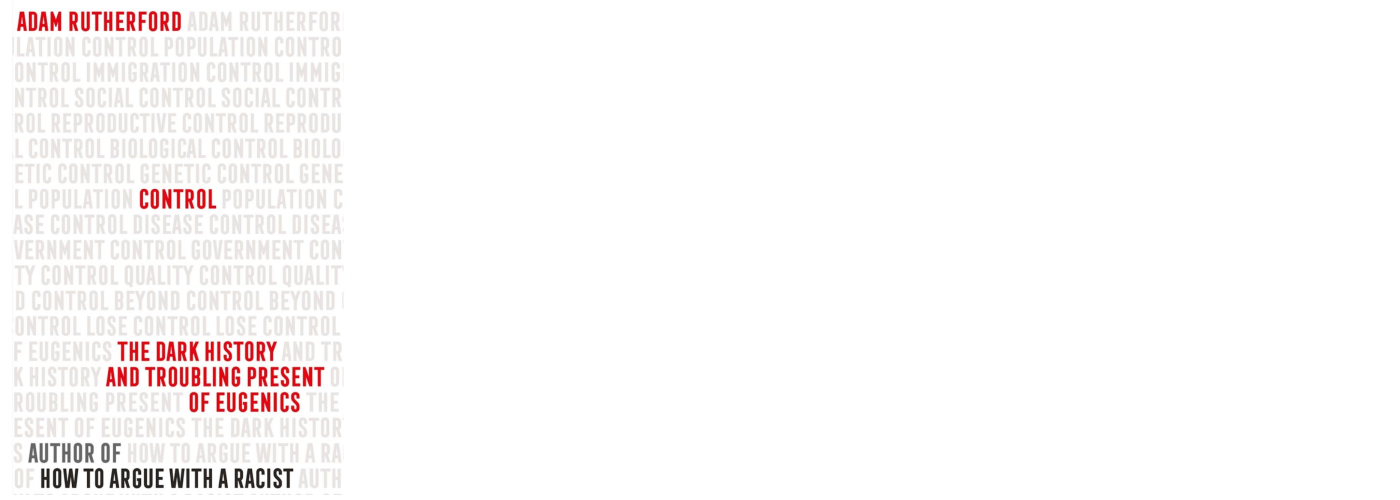One Party After Another: the ‘best biography of Nigel Farage’
Michael Crick tells the story of how Farage came to play such a decisive role in British politics

A free daily email with the biggest news stories of the day – and the best features from TheWeek.com
You are now subscribed
Your newsletter sign-up was successful
“This is a short book about a big subject,” said Katy Guest in The Guardian: a nuanced and “persuasive” account of what Adam Rutherford calls the “dark history and troubling present of eugenics”. With an admirable lack of alarmism, Rutherford, a geneticist, shows how the aspiration to craft society “by biological design” is one that has existed for millennia: Plato, for instance, in his Republic, envisaged “inferior” citizens being discouraged from breeding.
The man regarded as the father of modern eugenics is the Victorian polymath Francis Galton, said Tim Adams in The Observer. His idea of “positive eugenics” (using selective breeding to raise the calibre of humans) inspired disciples from across the political spectrum, including a young Winston Churchill, the liberal reformer William Beveridge, and the birth-control pioneer Marie Stopes. But though eugenicist ideas flourished in the early decades of the 20th century, they were dealt a seemingly killer blow by the “genocidal atrocities” of the Nazis.
Not quite, said Philip Ball in the FT: eugenicist ideas never really went away. Even after the Second World War, enforced sterilisation persisted in many countries. In California, the practice was only banned in prisons in 2014. And now, eugenics is being given a new boost by the emergence of modern genetics. In the near future, some predict, parents will be able to “choose” desirable traits in their children – either by selecting between screened embryos, or by editing their offspring’s genomes.
The Week
Escape your echo chamber. Get the facts behind the news, plus analysis from multiple perspectives.

Sign up for The Week's Free Newsletters
From our morning news briefing to a weekly Good News Newsletter, get the best of The Week delivered directly to your inbox.
From our morning news briefing to a weekly Good News Newsletter, get the best of The Week delivered directly to your inbox.
Rutherford insists that such approaches are unlikely to work, given the near-impossibility of discerning a specific trait from the fiendishly complex interactions of genes. But even if Rutherford is surely right to call eugenics a “busted flush”, he’s also wise to warn of the dangers of a revival.
Weidenfeld & Nicolson 288pp £12.99; The Week Bookshop £9.99

The Week Bookshop
To order this title or any other book in print, visit theweekbookshop.co.uk, or speak to a bookseller on 020-3176 3835. Opening times: Monday to Saturday 9am-5.30pm and Sunday 10am-4pm.
A free daily email with the biggest news stories of the day – and the best features from TheWeek.com
-
 Political cartoons for February 20
Political cartoons for February 20Cartoons Friday’s political cartoons include just the ice, winter games, and more
-
 Sepsis ‘breakthrough’: the world’s first targeted treatment?
Sepsis ‘breakthrough’: the world’s first targeted treatment?The Explainer New drug could reverse effects of sepsis, rather than trying to treat infection with antibiotics
-
 James Van Der Beek obituary: fresh-faced Dawson’s Creek star
James Van Der Beek obituary: fresh-faced Dawson’s Creek starIn The Spotlight Van Der Beek fronted one of the most successful teen dramas of the 90s – but his Dawson fame proved a double-edged sword
-
 James Van Der Beek obituary: fresh-faced Dawson’s Creek star
James Van Der Beek obituary: fresh-faced Dawson’s Creek starIn The Spotlight Van Der Beek fronted one of the most successful teen dramas of the 90s – but his Dawson fame proved a double-edged sword
-
 Properties of the week: pretty thatched cottages
Properties of the week: pretty thatched cottagesThe Week Recommends Featuring homes in West Sussex, Dorset and Suffolk
-
 Kia EV4: a ‘terrifically comfy’ electric car
Kia EV4: a ‘terrifically comfy’ electric carThe Week Recommends The family-friendly vehicle has ‘plush seats’ and generous space
-
 Bonfire of the Murdochs: an ‘utterly gripping’ book
Bonfire of the Murdochs: an ‘utterly gripping’ bookThe Week Recommends Gabriel Sherman examines Rupert Murdoch’s ‘war of succession’ over his media empire
-
 Gwen John: Strange Beauties – a ‘superb’ retrospective
Gwen John: Strange Beauties – a ‘superb’ retrospectiveThe Week Recommends ‘Daunting’ show at the National Museum Cardiff plunges viewers into the Welsh artist’s ‘spiritual, austere existence’
-
 Bad Bunny’s Super Bowl: A win for unity
Bad Bunny’s Super Bowl: A win for unityFeature The global superstar's halftime show was a celebration for everyone to enjoy
-
 Book reviews: ‘Bonfire of the Murdochs’ and ‘The Typewriter and the Guillotine’
Book reviews: ‘Bonfire of the Murdochs’ and ‘The Typewriter and the Guillotine’Feature New insights into the Murdoch family’s turmoil and a renowned journalist’s time in pre-World War II Paris
-
 6 exquisite homes with vast acreage
6 exquisite homes with vast acreageFeature Featuring an off-the-grid contemporary home in New Mexico and lakefront farmhouse in Massachusetts